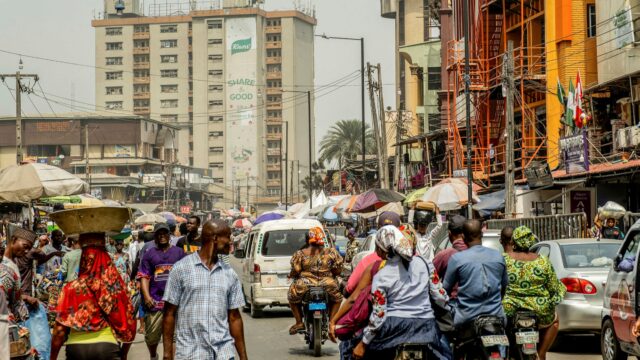Many in the financial establishment in industrialized economies see bitcoin and other cryptocurrencies with skepticism, as a speculative and highly volatile trend that can only end badly.
U.S. and European regulators have issued dire warnings about the perils of crypto trading. In China, regulators clamp down hard on crypto mining, forcing crypto companies to shut down their operations.
In underdeveloped nations, though, there are indications that crypto is quietly establishing deeper connections. Especially in nations with a history of financial fragility or where inability to access conventional payment services such as bank accounts are increasing, cryptocurrency use is rapidly becoming a daily part of life.
Suggested Reading | English Premier League Kicks Off NFT And Metaverse Venture
Sixty percent of Nigerians are optimistic about bitcoin's future (Financial Times).
Bitcoin Optimism In Developing Nations Is High
According to a survey conducted by digital payment company Block Inc., the higher respondents assessed their own degree of Bitcoin understanding, the more hopeful they are about Bitcoin’s future.
The survey also finds that people in underdeveloped nations are more positive about the crypto’s future compared to those in the west.
The analysis, which was published on Tuesday, demonstrates an association between optimism and the likelihood of making a purchase, and compares this result to the self-reported level of knowledge of the respondents.

Source: Arcane Research
Nigerians Are Positive About Bitcoin’s Future
For instance, Nigerians (60 percent), Indians (58 percent), and Vietnamese (56 percent) are the most optimistic about bitcoin’s future.
Only 29 percent of Americans and 22 percent of Germans feel hopeful about the crypto’s future, respectively. This is a stark contrast to the optimism prevalent in poorer nations.
People with lower incomes, regardless of where they live in the world, acknowledge bitcoin’s value as a payments infrastructure, viewing it as a means to transfer remittances and purchase products and services.
These results are not unexpected, given that Nigeria, India, and Vietnam also ranked highly in the Chainalysis Global Crypto Adoption Index 2021.
According to the Chainalysis GCAI 2021 survey, a number of nations in emerging markets, including the aforementioned countries, rank highly on its index due in significant part to the high amount of transactions on peer-to-peer (P2P) networks.
BTC total market cap at $862 billion on the daily chart | Source: TradingView.com
Bitcoin: The Most Popular Cryptocurrency
Based on interviews with specialists in these nations, a large number of citizens utilize peer-to-peer cryptocurrency exchanges as their primary entry point into the crypto market, typically because they lack access to centralized exchanges.
Compared to the US and Germany, Japan scores the lowest with only 11% optimism about Bitcoin’s future. Surprisingly, China has a greater Bitcoin optimism score (36 percent) than western nations, despite repeated attempts by the government to outlaw the cryptocurrency.
Meanwhile, Bitcoin was the most well-known cryptocurrency overall and across regions, with 88 percent of respondents having heard of it, which is twice as many as the 43 percent who have heard of other cryptocurrencies.
Suggested Reading | Pintu, An Indonesian Crypto Exchange, Secures $113 Million Funding
Featured image from ICTWorks, chart from TradingView.com


